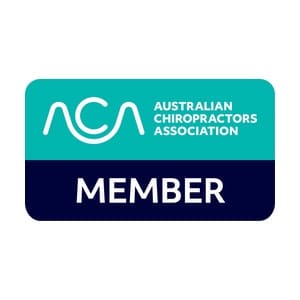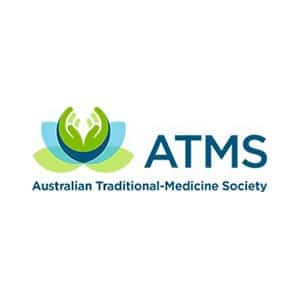Restless Leg Syndrome (RLS) refers to the uncontrollable urge to move your legs, typically to alleviate an uncomfortable feeling in your legs. People often describe the sensation as crawling, pulling, aching, throbbing, itching, or even electric. In addition to these symptoms, people with RLS may experience fatigue or restlessness, difficulty falling asleep/sleep deprivation, excessive daytime sleepiness, or a common urge to move, especially the legs and feet.
Symptoms most commonly manifest during the evening or night-time and are particularly exacerbated whilst sitting or lying down. RLS can be caused by hereditary factors or pregnancy in which hormonal changes may exacerbate existing RLS symptoms, or women may experience RLS for the first time, particularly during the last trimester. RLS can also be worsened by nerve damage, iron deficiency, kidney failure, spinal cord conditions, or Parkinson’s disease.
How can a chiropractor help with Restless Leg Syndrome?
Moving your leg around may temporarily alleviate the discomfort, but unfortunately, it won’t be a permanent fix. In addition to self-care steps and medication, chiropractic treatment can be particularly effective!
Chiropractors can assist in restoring proper nerve function in your legs. They achieve this through:
- Adjustments – chiropractors can perform appropriate adjustments where a misalignment is causing or aggravating your RLS. They can also check for and adjust spinal misalignments which are contributing to the discomfort
- Massage therapy – Our clinic offers remedial massage services that may aid in alleviating leg muscle tension, particularly where it arises from lots of activity (i.e. sport), stress, or fatigue
- Heat therapy – heat packs can be used during treatment to relax the muscles and minimise tension
- iTens Machine – electrotherapy through an iTens machine can be particularly effective in treating overactive nerves stimulating the pain. This can prevent the uncomfortable sensations experienced by RLS patients
- Stretch Plan – your chiropractor can develop a personalised stretch/exercise plan that you can conveniently complete in your home. This could include a hip stretch, thigh stretch, or calf stretch, and can significantly improve leg mobility and comfortability.
Are you displaying signs of restless leg syndrome? Click here to book a consultation, or contact us at (02) 9588 7000.
Frequently Asked Questions about RLS
What is Restless Leg Syndrome (RLS)?
Restless Leg Syndrome (RLS) is a neurological disorder characterized by uncomfortable sensations in the legs, often described as tingling, creeping, or crawling. These sensations typically occur when at rest and are relieved by movement.
What are the common symptoms of RLS?
Common symptoms of RLS include an irresistible urge to move the legs, discomfort or unpleasant sensations in the legs, worsening of symptoms during periods of inactivity or at night, and temporary relief with movement.
What causes Restless Leg Syndrome?
The exact cause of RLS is not fully understood, but it is believed to involve a combination of genetic and environmental factors. Iron deficiency, dopamine imbalance in the brain, certain medications, and pregnancy are known to contribute to RLS symptoms.
Who is at risk of developing RLS?
RLS can affect people of all ages, although it is more common in middle-aged and older adults. Individuals with a family history of RLS, iron deficiency, certain chronic diseases such as kidney failure, and pregnant women are at higher risk.
How is Restless Leg Syndrome diagnosed?
Diagnosis of RLS is primarily based on clinical evaluation and a review of symptoms by a healthcare professional. There are no specific tests for RLS, but blood tests may be conducted to rule out underlying conditions such as iron deficiency.
What are the treatment options for RLS?
Treatment for RLS focuses on managing symptoms and improving quality of life. Lifestyle changes such as regular exercise, avoiding caffeine and alcohol, and establishing a regular sleep routine may help. Medications such as dopamine agonists, anticonvulsants, and iron supplements are also commonly prescribed.
Can Restless Leg Syndrome be cured?
While there is currently no cure for RLS, treatment can effectively manage symptoms and provide relief. Many individuals with RLS experience periods of remission or find that symptoms improve over time with proper management.
Can RLS affect sleep?
Yes, RLS symptoms often worsen at night or during periods of rest, leading to difficulty falling asleep or staying asleep. This can result in daytime fatigue and impairment of overall quality of life.
Is Restless Leg Syndrome a serious condition?
While RLS is not life-threatening, it can significantly impact daily functioning and quality of life, particularly if left untreated. Chronic sleep disturbances associated with RLS may contribute to other health issues such as depression, anxiety, and impaired cognitive function.
Are there any complications associated with RLS?
In addition to sleep disturbances, untreated RLS may increase the risk of developing other health conditions such as cardiovascular disease and mood disorders. It can also lead to decreased productivity and impaired social functioning due to fatigue and discomfort.






